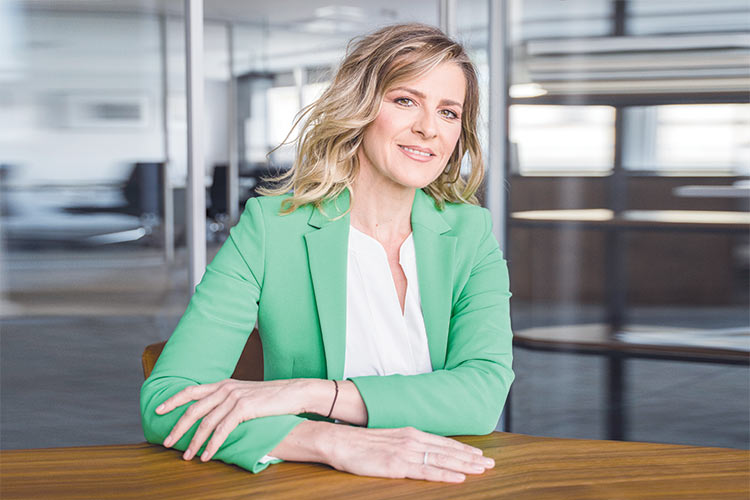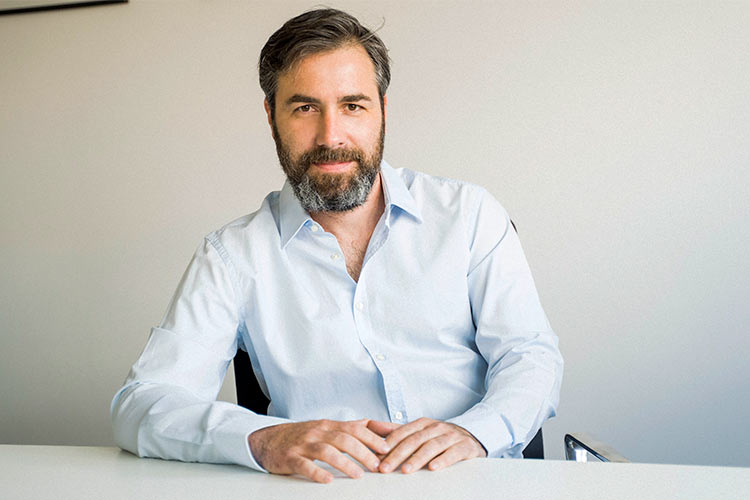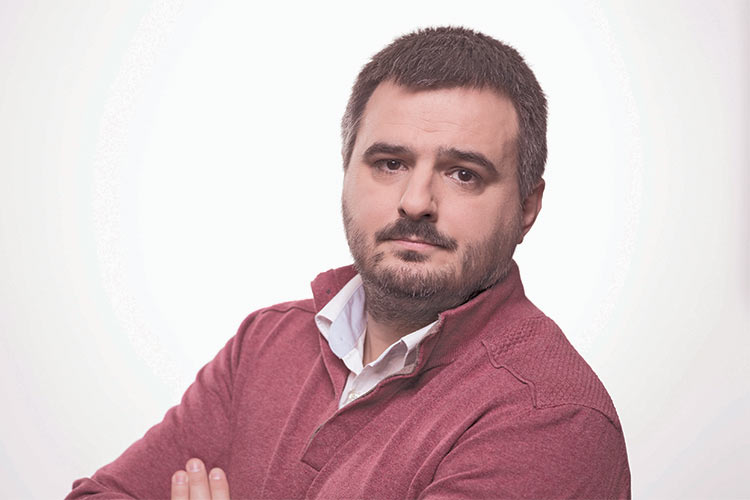CWP Global is one of the largest investors in wind farms in Serbia, and known worldwide for large and innovative renewable energy projects
Serbia has the potential to develop over 4 GW of green projects in the next ten years. Faster than we imagined, we will see a large proportion of green energy in our energy mix.
Can you briefly introduce us to your company?

Maja Turković: CWP Global was established in 2007 as a result of our passion for alternative energy and the opportunities that have emerged in Southeast Europe for renewable energy projects. In a short time, we have become the most successful developer in the region and recognizable for the development of the largest wind farms in Serbia and Romania. In Serbia, we have developed the largest wind farm Chibuk 1, with an installed capacity of 158 MW, which started operating in 2018 and is now owned by the consortium Masdar, Taaleri and Deg. The 600 MW Fantanella project in Romania, which became the property of CEZ, was put into operation in 2012, but is still considered the largest onshore wind farm in Europe.
We have also been working since 2008 in Australia, where we have successfully built 2 GW projects and today we are the largest independent producer of electricity from renewable sources. Thanks to the innova tion of our team, we were among the first to introduce successful business models of cooperation for our projects such as corporate power purchase agreements (PPAs) and strategies for direct sale of electricity on the market. In addition to the unique Sapphire hybrid project (270 MW wind, 165 MW solar and 35 MWh of batteries), our company is globally recognized by the AREH (Asian Renewables Energy Hub) project. With an area of 6.5 thousand kilometres in the uninhabited part of Western Australia and an estimated investment value of USD 36 billion, this hybrid project of 26 GW of wind and sun, which will be used to produce green hydrogen, is considered the largest energy project in the world.

In Southeast Europe, in Serbia, Bulgaria and Romania, we are today developing a portfolio of projects with a total capacity of 1.4 GW, of which a total of 500 MW is in Serbia. Our team in Belgrade is constantly growing and today we have 14 highly educated and motivated employees who work hard to realise our projects.
Serbia has a law on renewable energy sources, it has investors and a serious capacity of renewable energy in various stages of development. Are we missing anything to take a major step forward?
Maja Turković: The new Law on Renewable Energy Sources is the best signal to investors to invest in the development and construction of power plants that use renewables. The law gives a clear signal that Serbia is ready for a radical energy transition, and that faster than we had imagined we will see a large proportion of green energy in our energy mix. According to our estimates, Serbia has the potential to develop over 4 GW of green projects in the next ten years. Regulations are being drafted to enable the implementation of this law, which we expect in the near future. This will complete the regulatory package that will enable investment and integration of a large capacity from renewable sources into our electrical system and on the electricity markets.
What has changed is that technological development and the declining trend in the cost of wind turbines and photovoltaic systems have led to a large drop in production costs. The profitability of a wind or solar power plant today no longer depends on subsidies or incentives from the state. The future of renewable energy is the market. And our company is ready for market competition.
The key to integrating large renewable capacity is to increase the transmission and interconnection capacity of the grid, to avoid congestions, given the high pressure on the transmission system operator with many connection demands. Equally important is market coupling into single prices zone which would enable development of a liquid intraday electricity market.
CWP Global is one of the largest investors in wind farms in Serbia. What projects are you currently working on?
Nikola Stamenov: Since 2019, we have started a second cycle of constructing wind farms in Serbia. After the successful completion of the Chibuk 1 project, we are today in full swing developing the 300 MW Vetrozelena project. This wind farm in Pancevo is worth over EUR 300 million, and when the project is put into operation at the end of 2024, the energy produced here will be enough to supply over 200,000 households. In addition to Vetrozelena, we expect to launch a couple more large wind farm projects in the country and the region in the coming period.

CWP Global in Serbia has recently been developing solar (PV) power plant projects.
Nikola Stamenov: Solar power plants are currently one of the most interesting energy topics in Serbia. One of the reasons is that we as a country have not been able to open our solar potential so far, and the share of about 10 MW of solar in the energy mix of the country is almost negligible. For example, countries in our region such as Bulgaria and Romania have over 1 GW of solar, both large projects and small ‘on the roof’ projects. But thanks to recently adopted regulations, we expect a big boom in Solar in the country, and in our view Serbia will receive over 1,000 MW of solar projects in the next few years. This is great news, both for the economy and energy, as well as for the environment, which is probably the most important thing.
As for our company, in addition to extensive experience in the development of solar power plants in Southeast Europe and especially in Australia, we are currently developing two large solar parks in Serbia with a total capacity of 200 MW. The expected investment value for these two projects is around EUR 145 million. The total energy produced in these solar parks will be enough to supply 80,000 households with clean energy. We expect these plants to start operating at the beginning of 2024.
Serbia has an important task ahead of it for improving the environment. How do you see the role of your company on that path?
Nikola Stamenov: You are absolutely right. Like the rest of Europe and the world, Serbia has very little time to stop the devastating climate change that our civilization has unequivocally caused, basing its development and prosperity in the last 100 years on cheap and available fossil fuels.
Our company and the entire renewable energy industry have the task of offering governments, corporations, industry and the population an alternative to fossil fuels as soon as possible, and to help Serbia to be a carbon free society by 2050 like the rest of the world. There is no alternative to this, however ambitious and perhaps unrealistic it may sound. This is the question of all questions, a question of survival, and that is why we at CWP Global have a sense of great responsibility but also of pride in being part of this great and most important revolution – the green revolution.
How does business sustainability policy affect a company’s value?
Vladan Rankov: ESG policy defines the criteria for a company’s sustainable business and has a major effect on the company’s value. When deciding on the price of capital and the value of a company, financiers and investors quantify and monitor the effects of ESG through so-called ratings or scoring.

These assessments examine how the company addresses challenges related to environmental pollution, greenhouse gas emissions, climate change, human capital management, the health of its staff, the working environment, etc. Inadequate management causes additional costs for the company in the form of pollution taxes, higher financing costs, loss of productivity, etc. It is estimated that in our industry, 35% of the total value of the company may be called into question by inadequate ESG.
This assessment was made by the globally recognized consulting firm McKinsey in its quarterly report in November 2019. CWP Global therefore pays special attention to such issues and addresses these challenges with its own management policy.